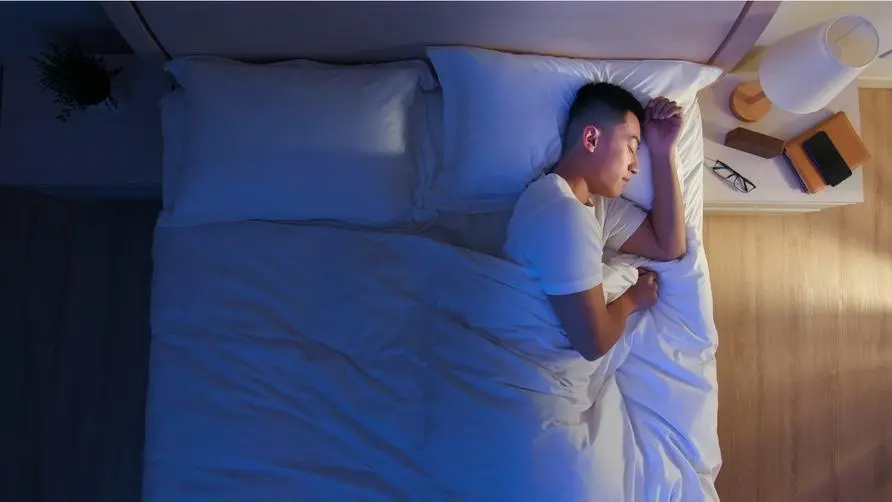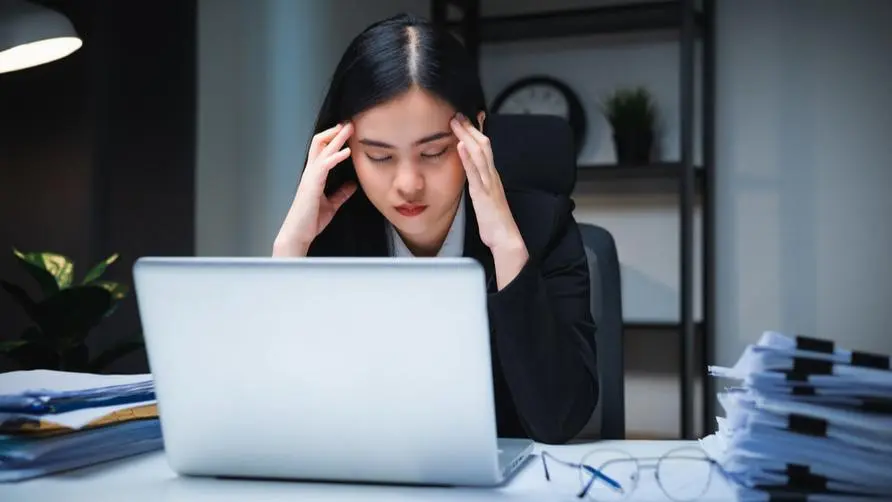When stress comes, do you want to drink precious milk or eat salty crispy chicken? If you want to lose weight, please avoid "emotional eating" first

During the epidemic, you should pay attention to the following phenomena when you are unintentionally gaining weight: Are you struggling with work and family, and facing huge pressure, so you start to overeat? Or are you in a rush at work and eating too quickly? Do you often need to eat while working? Do you just want to comfort yourself with a midnight snack after working overtime? Have you noticed that ordering drinks for delivery is becoming more and more common recently?
Psychologist Su Congqi, director of the Four Seasons Heart Psychological Counseling Center, said that if the above happens to you during the epidemic, and you change from a “little bird stomach” to a “big food monster for epidemic prevention”, you may have fallen into “emotional eating” and “stress” “Sexual eating” trap!
Does high stress cause your body to absorb more calories? Be careful if you eat too much and your weight will grow like a storm.
Psychologist Su Congqi explains that “emotional eating” and “stress eating” are both behaviors that relieve emotions and relieve stress through eating. When emotional eating or stress eating occurs, the body will be more inclined to consume unhealthy foods high in fat, salt, and sugar to achieve a stress-relieving effect.
Psychologists analyze that when we are in a bad mood or are too stressed, we will not choose to eat fruits and vegetables to relieve stress. Instead, we will indulge in salty crispy chicken and pearl milk tea. This is because high-calorie foods can stimulate the secretion of “dopamine” in the brain. , making the brain feel happy. But this pleasure is usually fleeting, just like taking drugs; when the pleasure fades, it will aggravate the uncomfortable feeling, leading to the next overeating and falling into a vicious cycle.
Psychologist Su Congqi pointed out that stress can be divided into “short-term stress” and “long-term stress”. Situations that occur temporarily in daily life, such as traffic jams, being late, or encountering a supermarket clerk with a bad attitude, are short-term pressures that can be released in a short period of time. On the contrary, a months-long three-level epidemic prevention alert or a protracted new coronavirus epidemic may aggravate loneliness and fear, resulting in chronic long-term stress.
Short-term stress will cause the body to secrete adrenaline and suppress appetite, thus causing a person to have a poor appetite; after the stress is eliminated, appetite may relapse, leading to overeating. Psychologist Su Congqi pointed out that stress has a dual impact on psychology and physiology. Some studies have even pointed out that when the human body is under increased psychological stress, the body will absorb more calories from food.
Eating one meal a day and not losing weight? Psychologist: “Understanding food” is more important than losing weight!
Although I only eat one meal a day and am practicing the “168 fasting method”, why does my weight not change? It may be that the “calorie deficit” is ignored as the prerequisite for weight loss. Psychologist Su Congqi pointed out that some people only eat one meal a day, but out of the mentality of compensating themselves, the meal they eat every day may be higher than their daily calorie consumption. This will not achieve the effect of caloric deficit, and the weight number will naturally not be the same. There will be improvements.
Psychologist Su Congqi believes that in order to achieve a caloric deficit, you must first understand the food you eat every day. Many people mistakenly think that they are eating healthy, but in fact they are consuming high-calorie or unhealthy foods. You can use methods such as taking photos and handwriting to record the contents of three meals to increase your awareness of your eating habits.
In addition, exercise is important for health and weight control, but during the epidemic, people are under high pressure. They should first take care of their own body and mind, establish a regular life, and do not deliberately require themselves to maintain too high-intensity exercise. Properly adjusting your exercise patterns can help relieve physical and mental stress, which in turn can be a positive aid to weight management.
In addition to understanding food and establishing a regular life, paying attention to adjusting the content of your diet is an important step in achieving weight management. Psychologist Su Congqi recommends mastering the following three key points to improve daily eating habits to help lose weight:
Pick the right food. Choosing “original foods” that are not too processed are a good source of nutrients.
Eat in the right order. The order of eating will affect the body’s endocrine. The order of eating can be adjusted to: protein → vegetables → sugar (starch). Consuming protein before meals can increase the feeling of satiety and send a message to the brain that you have “eat something delicious”, making you feel satisfied. You can also use the concept of the “Harvard Plate” to adjust the intake ratio of “vegetables: protein: carbohydrates” for each meal to “2:1:1”.
Drink enough water. The recommended daily water intake is “body weight multiplied by 30 c.c.”. If more active weight loss is required, it can be adjusted to “body weight multiplied by 50 c.c.”. It is not recommended to exceed 4000 c.c. a day.
Mobile phones have become the biggest source of stress during the epidemic. “Static and dynamic” activities can effectively calm emotions.
Psychologist Su Congqi said that during the epidemic, people have a lot more time to spend alone, and they should take good care of their own mental state and reduce behaviors that increase stress. For example, constantly paying attention to the epidemic news reported by the media, or spending a lot of time scrolling on mobile phones will increase anxiety and easily cause mood swings. Psychologists recommend that you keep an appropriate distance from the news and social media, and try to obtain epidemic information from the command center to reduce the anxiety caused by too much information.
In addition, psychologist Su Congqi also reminded that there are two ways to reduce psychological stress: “dynamic” and “static”. Dynamic methods such as yoga can help with physical and mental balance. Aerobic, strength training or high-intensity interval training also has a certain degree of stress relief. In the static mode, you can engage in activities such as reading, puzzles, knitting, etc. that do not involve competing with others and causing the brain to overthink, which can help calm your mood and relieve stress.





